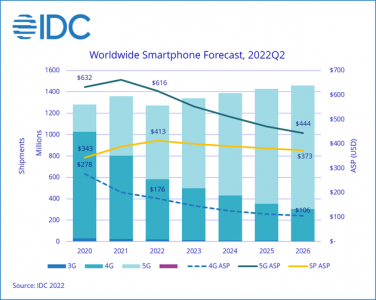your current location is:Home > TechnologyHomeTechnology
The United States forced the two companies to stop exporting top computing chips to China. China: "Technology Hegemony"!
"The U.S. approach is typical of 'technological hegemony'." Regarding the U.S. government's request for two U.S. chip design companies to stop exporting top computing chips to China, Chinese Foreign Ministry spokesman Wang Wenbin said on September 1, "China is firmly opposed to this." The stock prices of Nvidia and AMD (AMD), which were directly affected by the new U.S. restrictions, fell immediately, with a drop of 6.6% and 3.7%, respectively, on August 31. Nvidia said its potential sales of $400 million for the quarter could evaporate along with it. Today, American chip makers are already in a difficult time. As Shu Jueting, a spokesperson for China's Ministry of Commerce, said, the U.S. approach will also seriously affect the interests of U.S. companies. For a period of time, the United States has successively introduced measures to suppress the development of China's chip industry. Regarding the latest restrictions, Reuters believes that this "marks a major upgrade of the United States' ability to combat China's technological capabilities." Domestic analysts who were interviewed by a reporter from the Global Times on the 1st said that on the one hand, we need to be vigilant that the United States continues to play a "combination punch" against China's semiconductor industry, but from another perspective, the United States' export ban is also an opportunity. It can promote the further development of the domestic chip industry chain where the interaction between upstream and downstream is insufficient.
 Data map source ICphoto
Data map source ICphotoNvidia hit hard, says it's talking to Chinese customers
According to a report by the US CNBC website on September 1, in a document submitted to the US Securities and Exchange Commission (SEC), Nvidia said that the company received information from the US government on August 26 about future exports to China (including Hong Kong). New licensing requirements for chips. The measure purportedly addresses the risk of products being used or diverted to China for "military end-uses" or "military end-users."
The New York Times quoted Nvidia on August 31 as saying that the new measures affected the company's existing product A100 and the product H100, which is expected to be launched later this year. Nvidia believes that the U.S. government's regulations risk compromising its ability to complete H100 development in a timely manner or to support existing A100 customers. According to reports, this restriction also applies to Russia, but Nvidia currently does not sell products to Russia.
An AMD spokesman told Reuters the company had also received a new license request from the government that would cause it to stop selling MI250 artificial intelligence chips to China. AMD believes that the MI100 chip should not be affected.
Reuters said the U.S. Commerce Department would not say what new standards it has set for exporting artificial intelligence chips to China, but said the department was reviewing China-related policies and practices to prevent "advanced technologies from falling into the wrong hands" .
Regarding the new U.S. measures, Chinese Foreign Ministry spokesman Wang Wenbin said on September 1 that the U.S. has politicized, instrumentalized, and weaponized technology and economic and trade issues, engaged in "technological blockade" and "technological decoupling," in an attempt to monopolize the world's advanced technology and maintain Its own technological hegemony, destroying the global industrial chain and supply chain with close cooperation, is doomed to fail.
"The U.S. side should immediately stop wrongdoing, treat companies from all over the world, including Chinese companies, fairly, and do more things that are conducive to world economic stability." On the same day, China's Ministry of Commerce spokesperson Shu Jueting also responded to the matter.
As Shu Jueting said, what the US does will not only damage the legitimate rights and interests of Chinese companies, but will also seriously affect the interests of American companies. The Wall Street Journal said on September 1 that Nvidia is the most valuable chip maker in the United States, and in the field of artificial intelligence chips, the company dominates the market. Still, Washington's new rule comes at a difficult time for chipmakers. Demand for computers, video games and smartphones, as well as other electronic devices, has slowed due to high inflation and a deteriorating economic outlook as people's spending power has been curbed.
In a statement, Nvidia said it was communicating with Chinese customers to be able to meet their planned or future purchases with the company's alternatives. The company plans to apply to the U.S. government for export exemptions, but there is "no guarantee" that it will be granted. If Chinese companies decide not to buy alternatives offered by Nvidia, the latter will lose $400 million in sales this quarter, CNBC said. Nvidia last week expected sales in the third quarter of this year to plummet 17% from a year earlier to $5.9 billion. According to the financial report released by the company, its total revenue in the last fiscal year was US$26.91 billion, and its revenue in China (including Hong Kong) was US$7.11 billion, accounting for 26.4%.
According to the Wall Street Journal, Nvidia believes that even if the U.S. government approves export exemptions, competitors, such as semiconductor suppliers from China, Israel and European countries, could benefit from it, because “the licensing process will make our sales and support work more cumbersome. , more uncertain, and prompting Chinese customers to look for alternatives.” AMD believes that the new regulations will not have a significant impact on its business.
This new move by Washington has also attracted media attention on the island. According to Taiwan's Zhongshi News Network on the 1st, Nvidia and AMD are TSMC's top ten customers, accounting for about 10% of its revenue in total. If their chip shipments decrease, it will also affect TSMC's performance. According to the report, affected by the fall in US stocks and the sudden introduction of restrictions on the export of high-end artificial intelligence chips in the United States, Taiwan stocks opened lower on the 1st, and closed down by nearly 300 points. TSMC's stock price fell below NT$500 in early trading.
Setting a "performance threshold" for chips exported to China?
An industry executive interviewed by The Wall Street Journal analyzed that the ban not only affects Nvidia and AMD, but also sets a "performance threshold" for other high-end chips that handle artificial intelligence computing to be exported to China. In Reuters' view, the new chip export curbs "mark a major escalation in the U.S. crackdown on China's technological capabilities."
The New York Times believes that the new measures against China and Russia are the latest attempt by the US government to use semiconductors as a tool to hinder competitors from making progress in fields such as high-performance computers and artificial intelligence. The export ban is part of an effort by the United States and China to compete for dominance in advanced technology.
According to reports, the A100, H100 and MI250 chips are all GPU (graphics processing unit) products. In the professional field, GPUs are an important source of computing power in data centers, high-performance computers, and artificial intelligence. Reuters said that if high-end chips from American companies such as Nvidia and AMD cannot be obtained, the ability of Chinese companies to perform high-level computing such as image and speech recognition will be weakened. Image recognition and natural language processing are common in smartphone applications, such as responding to user inquiries and tagging photos. These capabilities also have military uses, such as searching for satellite imagery containing weapons or military bases, and filtering digital communications for intelligence gathering purposes.
"Also an opportunity" for China
The Wall Street Journal said that restrictions on U.S. trade with China and the export of chips have become commonplace. In mid-August, the United States announced the implementation of export controls on four technologies including EDA software tools. The "Chip and Science Act of 2022" signed by US President Biden on August 9 stipulates that companies receiving federal subsidies cannot significantly increase the production of "advanced process" chips (generally considered to refer to chips below 28 nanometers) in China. In addition, US media disclosed at the end of July that two US chip equipment companies confirmed that Washington asked them not to supply China with equipment for 14nm and below chip manufacturing.
Gu Wenjun, chief analyst of Coremo Consulting, told the Global Times reporter on the 1st that by introducing a series of restrictive measures, the United States intends to suppress China's development in the high-end sectors of the technology field. Initially, it sanctioned Huawei and ZTE, which are located in the terminal part, and later imposed sanctions on Huawei and ZTE. The spearhead points to HiSilicon in the field of chip design and SMIC in chip manufacturing. Gu Wenjun said that in the short term, the United States hopes to let China "decouple" and "broken the chain" in the high-end parts of the chip. In the medium and long term, the United States hopes that itself and its allies will no longer be overly dependent on China's market and reduce the exchange of production factors with China.
"The US chip restrictions cannot stop the progress of China's semiconductor industry." The Russian Satellite News Agency quoted scholars as saying that in the entire semiconductor industry including China, the 28-nanometer process technology is still the most important factor for many manufacturers to maintain profits and participate in advanced semiconductor technology. The basis of R&D, state-of-the-art chip technology is indeed useful, but this is still a low percentage of the overall semiconductor industry. As for whether the U.S. restrictions will have a long-term impact on China, it depends on the development of the latter's semiconductor industry manufacturing and design. In 10 to 20 years, the development of the industry should undergo some changes, and new technologies may appear.
"From another perspective, the US export ban is also an opportunity for the domestic chip industry. Previously, there was insufficient interaction between upstream and downstream companies in the domestic chip industry chain, but we will further increase domestic substitution in the future." Jiwei Han Xiaomin, general manager of consulting, told the "Global Times" reporter that domestic industry chain companies should base themselves on the domestic market, gradually establish a complete chip industry chain ecosystem, and improve the industry's ability to resist risks, competitiveness and global influence.
related articles
Article Comments (0)
- This article has not received comments yet, hurry up and grab the first frame~













